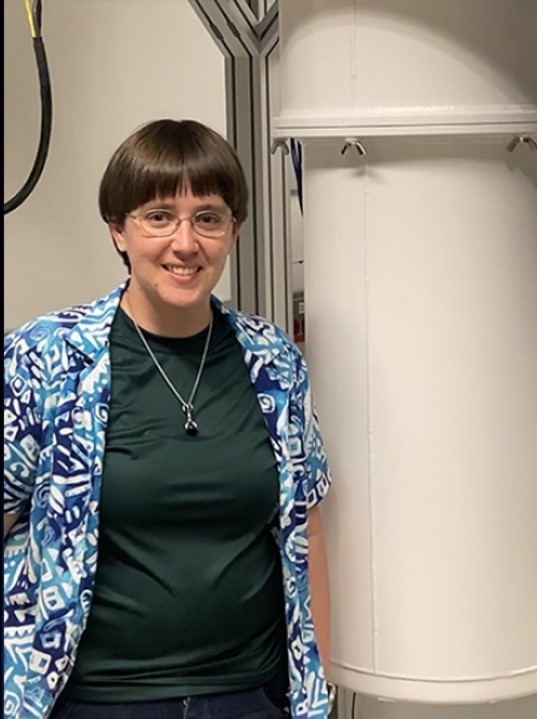Assistant Professor Alicia Kollár has received a prestigious Faculty Early Career Development (CAREER) award from the National Science Foundation (NSF) for a proposal aimed at developing a new window into the physics of particles interacting inside of materials and performing educational outreach. The award will provide $675,000 of funding over five years for her proposal titled “Engineering Interacting Photons in Superconducting-Circuit Lattices.”
Kollár, who is a Fellow of the Joint Quantum Institute and the Quantum Technology Center, will use the funds to investigate new physics that might be revealed by making particles of light (called photons) behave more like particles of matter (like electrons). Her plan is to tailor environments for photons by combining superconducting components into specialized circuits. This project builds on Kollár’s previous research that showed that these types of superconducting circuits can simulate material properties and even abstract mathematical spaces that can’t fit into normal space.
“I am thrilled to receive this award and the opportunities that it brings,” Kollár says. “Previously we showed that superconducting circuits have the ability to take photons into regimes where no other laboratory particles had gone before. The support of the NSF will enable us to truly dig into harnessing these unique circuits.” Alicia Kollár standing next to a dilution refrigerator in her lab. (Credit: Alicia Kollár)
Alicia Kollár standing next to a dilution refrigerator in her lab. (Credit: Alicia Kollár)
The superconducting circuits allow Kollár and colleagues to artificially create and investigate material properties and particle interactions that are difficult or impossible to access in a material. With this window into the lives of sub-atomic particles, Kollár hopes to gain insights into the fundamental building blocks of the materials that make up the world, particularly the influence of a material environment on how multiple particles interact with each other.
The new research will study how qubits—quantum bits that are the elemental foundation of quantum computer information storage—can be incorporated to mediate the interactions between photons and give researchers more adaptability when performing experiments.
As part of the award, Kollár will also work to make seminars about atomic, molecular and optical physics and quantum physics more accessible to undergraduate students and other audiences that lack expertise on the topics. She plans to build on the accessibility of the online Virtual AMO seminars(link is external) by incorporating online, small-group discussions that can provide background information, context and clarification and can promote follow-up conversations. These discussions are intended as an opportunity for physicists to develop interdisciplinary communication skills and for a non-physicist audience to have easy access to more context and thorough explanations than are generally provided in a large seminar setting.
“The online seminars that sprung up in response to COVID have shown that presentations about cutting edge research can be made available to a much broader group of people than traditionally had access,” Kollár says. “We are very excited to develop new ways to augment this content and allow people to engage with it, learning the language and context of modern quantum research.”
The CAREER award is the NSF’s most prestigious reward for early-career faculty. Recipients’ activities are intended to establish a foundation for them to be leaders in integrating education and research.
Original story by Bailey Bedford: https://jqi.umd.edu/news/kollar-receives-national-science-foundation-career-award